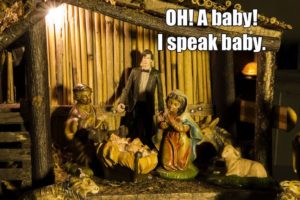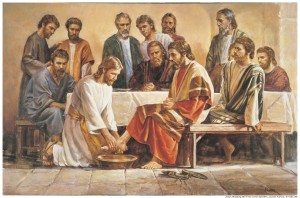After a harrowing last few weeks at grad school, what with final papers, grading, and other drama, I’ve finally reached Christmas break (or as I like to call it: my two weeks’ paid vacation). I suddenly have more time on my hands than I’ve been used to for a few months. Hence why I’m able to post a blog for you all. 😉
I’ve always loved this time of the year. I love summer for the freedom, fun, and weather (I have this theory that people like the season they were born in), but October through December is wonderful, in large part because of Halloween and Christmas. I’ve been reflecting on why I like those holidays as much as I do, and while I love them for different reasons, there is some overlap. Besides candy, of course. What’s that, you ask?
They’re mythic.

Both Halloween and Christmas have a tremendous amount of tradition and legend dating back centuries. These add mystique to the respective months leading up to the holidays themselves. Halloween dates back to Celtic harvest festivals and became part of the early Christian Church’s observance of All-Saints Day, which included candlelight vigils at the graves of the dead. As these pagan and religious sensibilities clashed, new traditions arose: trick-or-treating, costumes, horror movies, etc. Classic stories like “The Legend of Sleepy Hollow” and Dracula, among others, became icons of the holiday. It makes people think back on those scarier parts of our cultural mythos and everything else those stories represent. When you’re a kid, you relish the opportunity to play pretend, dress up as one of your favorite characters, and wander around your neighborhood gathering candy. If you were particularly mischievous you played pranks. It was the one night you could almost get away with murder (not literally, of course). 😛

But Halloween is behind us, and Christmas is before us. The yuletide season is one of love, generosity, and family. It goes back to winter solstice festivals, but once again, the early Church “Christianized” them by making it a day to remember the birth of Jesus Christ. The strange thing is this wasn’t a big deal until the mid-19th century. What changed it? A Christmas Carol. Yes, Charles Dickens arguably created the modern Christmas celebration. Other authors popularized the legendary Santa Claus, who delivered toys to all the good children of the world on Christmas Eve (because he’s a Time Lord ninja with a bag of holding) using a magical sleigh pulled by eight—or nine—flying reindeer. The night before Christmas is treated as a mystical time where almost anything seems possible, especially in the minds of children. That magic gives way to sheer joy on Christmas morning as everyone enjoys the gifts left by Mr. Claus.

J.R.R. Tolkien is said to have converted C.S. Lewis to Christianity by telling him that the story of Christ was the greatest myth in history because it was true. For myself, Christmas marks the beginning of that myth. The God of the Universe clothed himself in flesh and allowed himself to be born in the humblest of places to the humblest of parents and is visited the humblest of people. His birth was an invasion of enemy territory, the beginning of an incredible mission culminating with an epic destiny. To me, everything that has to do with Christmas—gifts, fellowship, food, and the traditions I’ve mentioned—all point back to this. It’s one of several reasons why I proudly wear a Santa hat during the week leading up to Christmas. It symbolizes Santa, who was inspired by St. Nicholas, who served the poor and needy out of his devotion to Christ. As we Marvel Cinematic Universe fans are fond of saying, #ItsAllConnected.
So, Merry Christmas, True Believers!
What are some of your favorite holiday traditions? What are you planning to do for Christmas? How else is Christmas “mythic”?


